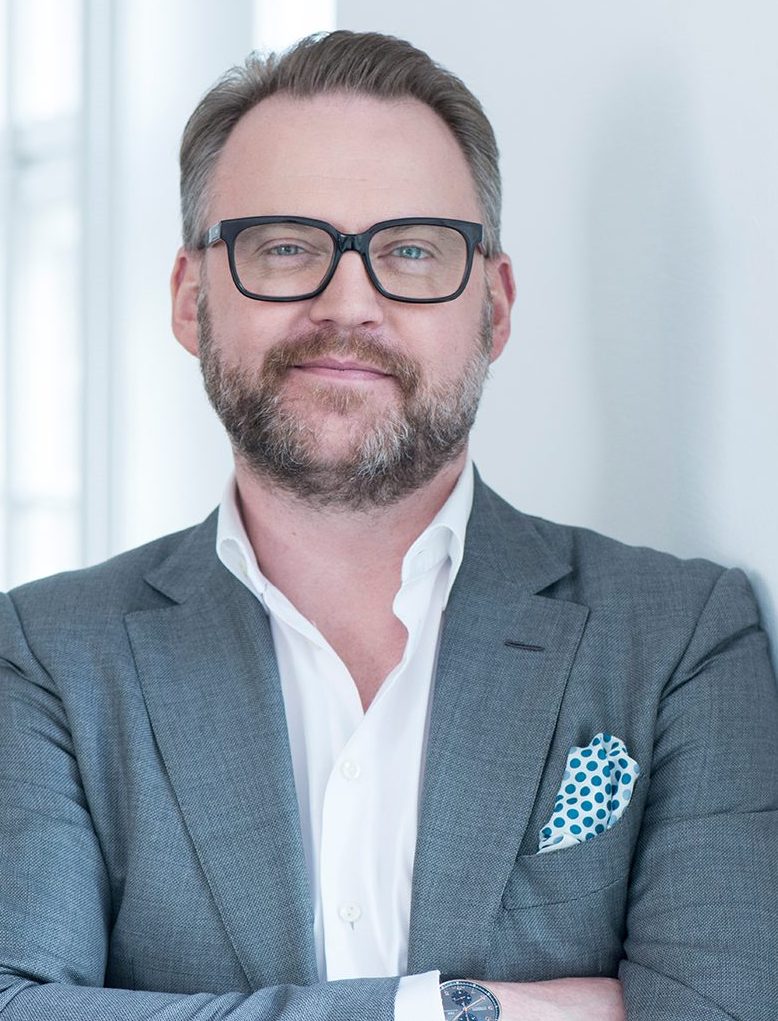Steinbeis experts reveal how to network
Successful networking isn’t ego-marketing, as Carsten Rasner, director of the Steinbeis School of Management and Innovation (SMI, Steinbeis University Berlin), knows. This message hasn’t been understood by everyone – as an example involving Donald Trump shows.
Donald Trump believes in networks. In 2009, when he was selling his name to Ideal Health as part of a licensing agreement, he said, “I’m a big fan of network marketing.” The US pharmaceutical company promptly renamed itself the Trump NetworkTM and registered the brand. After all, the real estate guru from New York, jury member of The Apprentice on TV and a highly paid public speaker, added a hallmark of success. And within no time, according to the Washington Post, the pharmaceutical sales reps working for Idea Health were seeing dollar signs. The size of the independent sales force shot up from 5,000 to 20,000.
Not everyone wants to be the US president, which may also has to do with Trump’s decades of networking, but no one will deny that actively honing contacts is part of everyday business. Christiane Wolff, chief corporate communications officer at the communication group Serviceplan, also believes in the power of networks. Wolff is a Steinbeis Media MBA alumna who already started forging her own network in 2001. “I’m not entirely sure if I would go out and set up a purely female network again,” admits the PR expert, because it’s not right to just move around in the safe confines of women’s circles. “For some topics, women’s networks are still important, but societal change only happens if men are involved, too. I can no longer make distinctions between professional and private topics when I’m contacting people,” says the native of Munich, pointing to private invitations as one of her most important sources of contacts.
Carsten Rasner, director of the Steinbeis School of Management and Innovation (SMI), also strongly believes that contacts are more likely to come to you than you having to go out to them. “You have to offer people something interesting; just making yourself look good isn’t enough.” By this he is also referring to written applications and job references, which people hardly believe anymore anyway: “I’m ten times more likely to believe someone I know personally than if I just see they have awesome contacts and references in digital networks.” Rasner says networking has been “fiendishly useful” since setting up the Steinbeis school in 1998. A number of interest groups, such as the ProSieben TV group, other universities, the Bocconi University, or other academics and entrepreneurs who lecture at the Steinbeis SMI, have complemented and helped each other. “There are very few areas where networking works as well as it does in an education environment, where you really get to know each other well,” he emphasizes. “You’re more open with each other; it’s different in work situations or at events after work.” His recommendation is therefore simple: Studying creates the best networks!
This is a belief shared by Professor Dr. Benedikt von Walter, who also lectures at the Steinbeis-SMI. Although he’s a professor for the digital economy and management, he underscores the advantages of “old school” networking, especially in the classroom. “The Steinbeis students are such unbelievably interesting people, so for me – just like with any good network – it’s also about give and take.” Whenever possible he tries to make his sessions like a workshop, so that the course participants can input with their own specialist knowledge and start to form lasting relationships. But he does also point to the theory postulated by the American sociologist Mark Granovetter: “His research on the strengths of weak relationships is a classic. As early as 1971, he was describing logic that can still be observed today in digital business net working.” Aside from strong ties, there are also passing or weak ties, which may not be so close, but they perform an important bridging function, especially when it comes to lining up new contacts or obtaining information.
Dr. Katja Nettesheim, who is an avid collector of business contacts and also works as a Steinbeis professor for Digital Media Management, has developed her own methods for working with social networks. “I hardly ever contact people I haven’t already had a point of contact with: I also feel uncomfortable if I get a contact request from someone I don’t know, not without good reason.” Also, her most valuable contacts are never “network powerhouses,” who apparently go systematically from room to room at events and get every single visiting card, even introducing themselves to people “for the hell of it,” whether the other person thinks it’s appropriate or not. “The links or multipliers in my network are all the sorts of people I would never have thought would be like that,” she says with surprise. Nettesheim says these people are gifted networkers, but they do so for genuine reasons and are actually interested in people.
Maybe Donald Trump and his business partners can take a leaf out of their book. The supposed mentor once held up a promise to the independent salesmen of the former company Ideal Health, saying, “The Trump Network offers people the opportunity to achieve their American dream.” But then the Trump Network deliberately allowed the license for his name to lapse after two years and shortly afterwards the company was sold to Bioceutica. Their relationship selling had run out of steam and the three owners and other employees of the Trump Network filed for bankruptcy. Some people still kept on going, claiming the downfall of the Trump Network was because of the financial crisis, but most of the people who were affected complained that Trump had not actively intervened to help “his” network. They also said he did nothing when it became clear that the unilateral approach adopted in relationship marketing was a one-way street. Maybe one contributing factor to all the misery was that the people who were contacted failed to see a fit between Trump and “his” offering: multivitamin products and urine tests.
Contact

Carsten Rasner
Carsten Rasner is director of the Steinbeis School of Management and Innovation (SMI) at Steinbeis University Berlin. The Steinbeis-SMI offers a variety of executive bachelor’s, master’s, and MBA programs for business management students, lower-level managers, senior managers, specialists and entrepreneurs, laying emphasis on sound theory, methods competence and future developments.
Carsten Rasner
Steinbeis School of Management and Innovation (SMI) at Steinbeis University Berlin (Berlin/Stuttgart)

Gabriele Spiller
Gabriele Spiller completed a Media MBA at Steinbeis-SMI and currently works as an arts editor and freelance journalist. Spiller has a previous degree in communications and having worked in media marketing and business development for around 20 years she is intimately familiar with the world of business. She also studied to become an arts publisher in Zurich, qualifying with an M.A. in Art Education. Spiller regularly writes for international daily publications and specialist formats, focusing on the arts, travel and general psychology.
gabrielespiller.pressfolios.com

